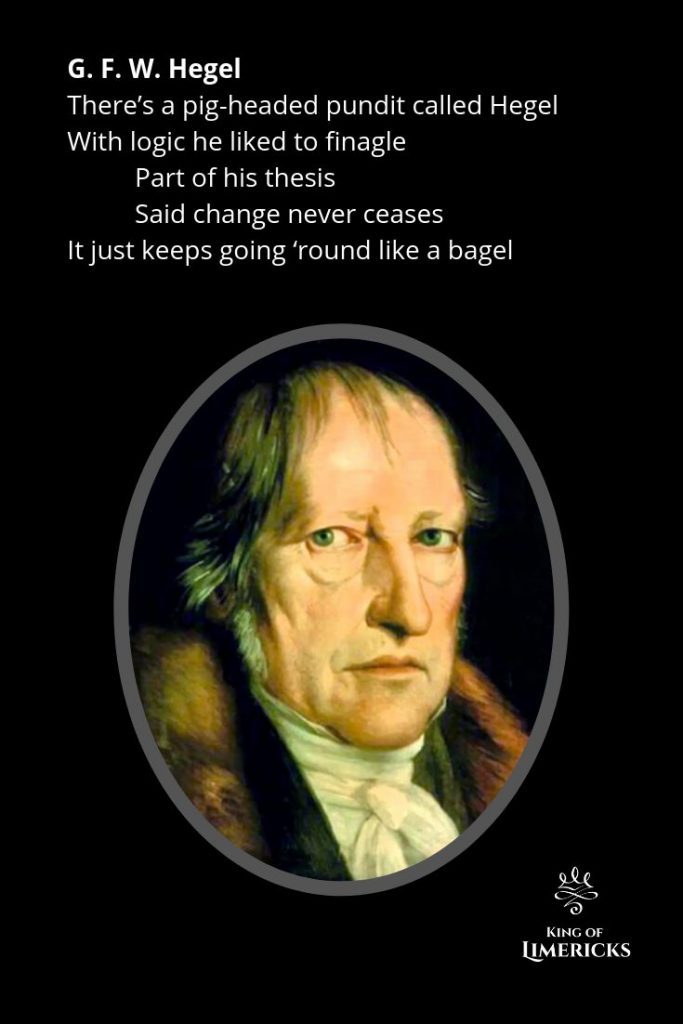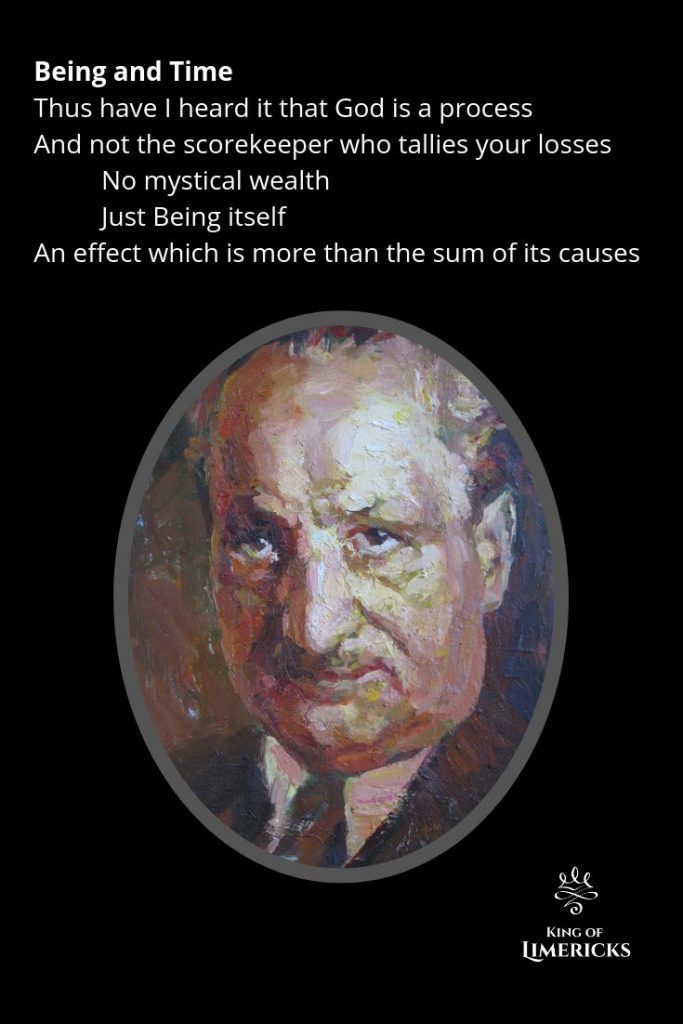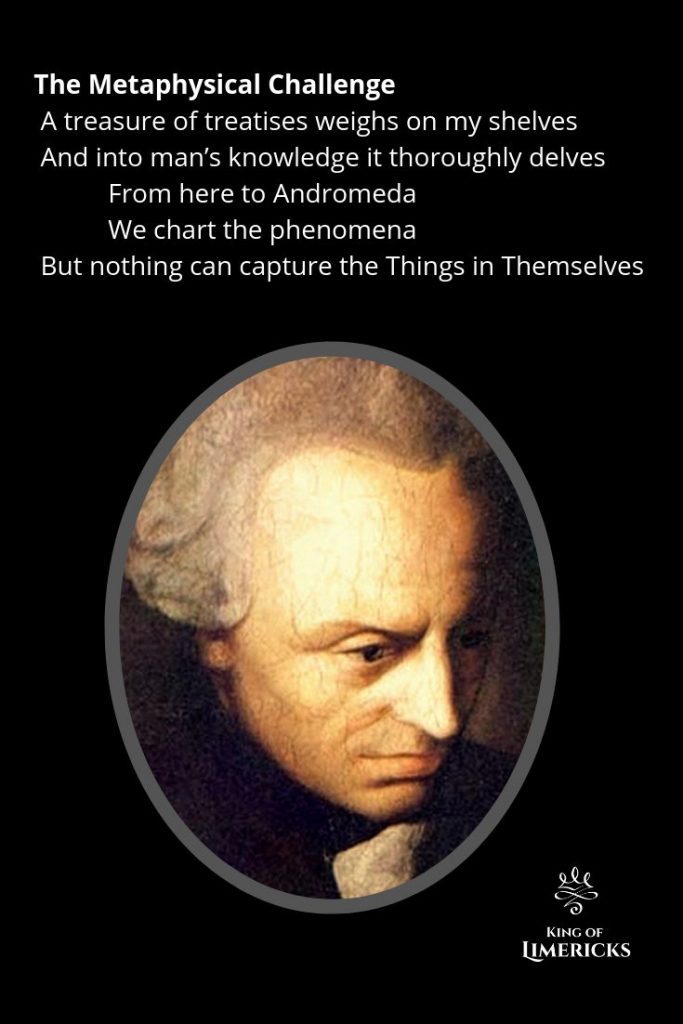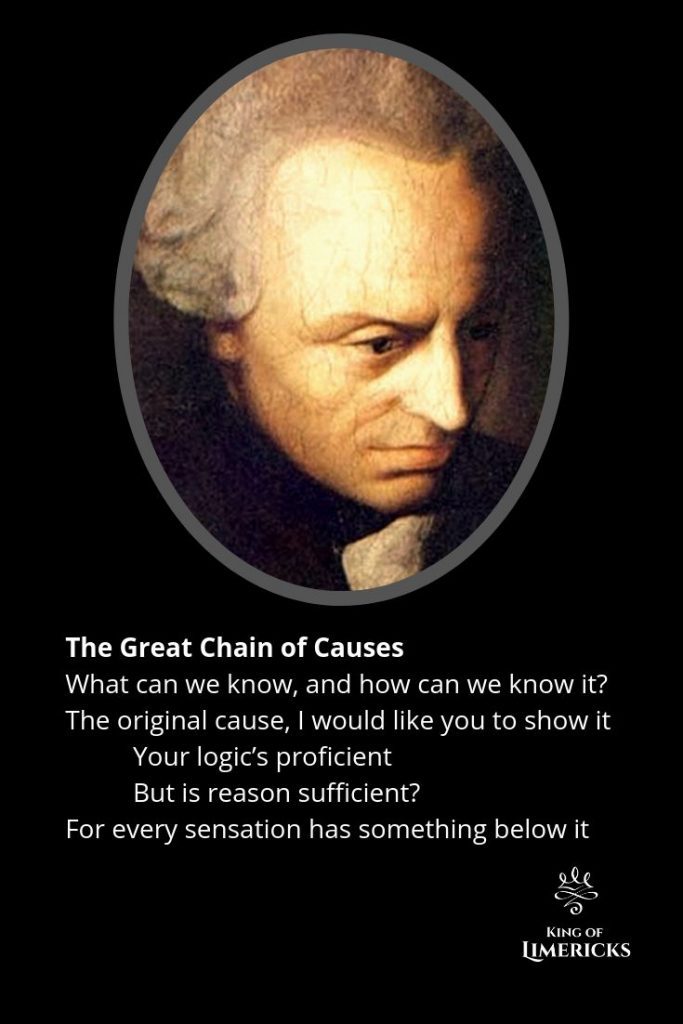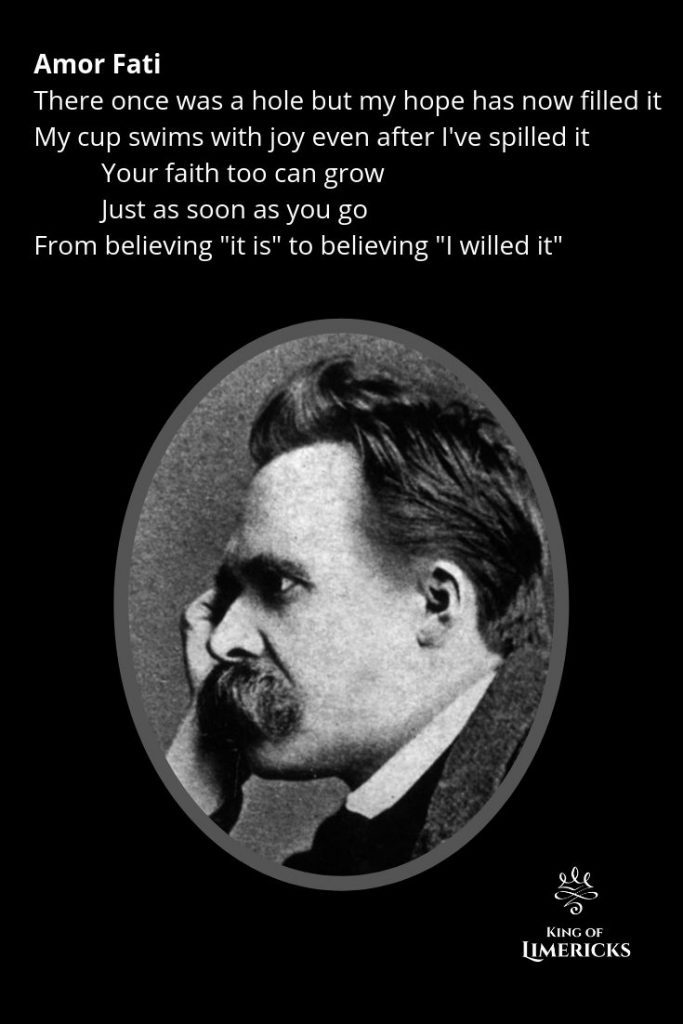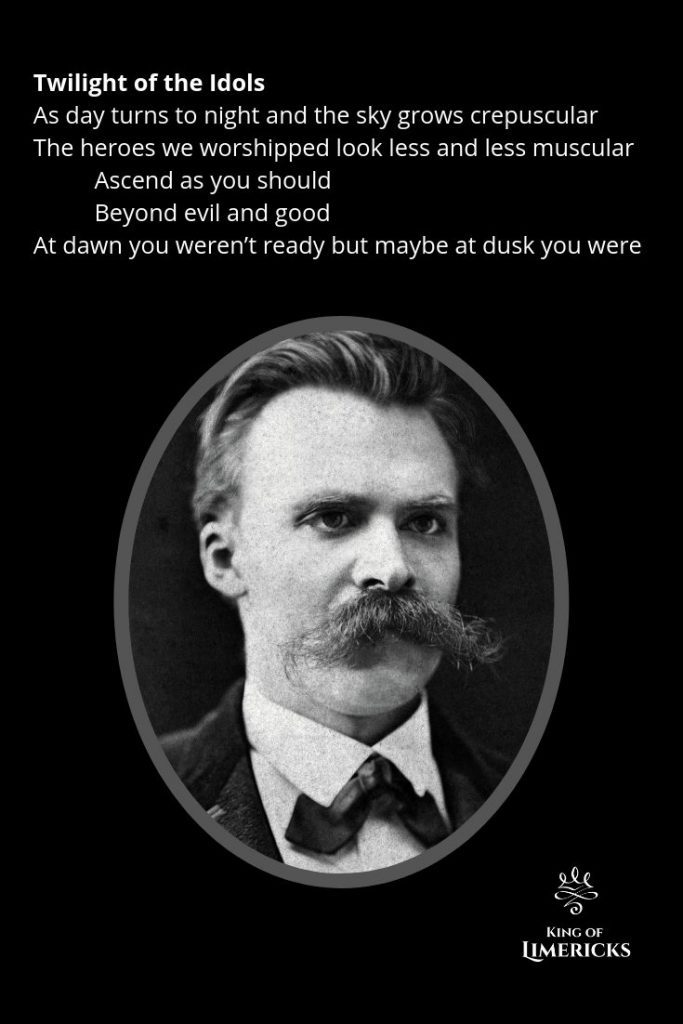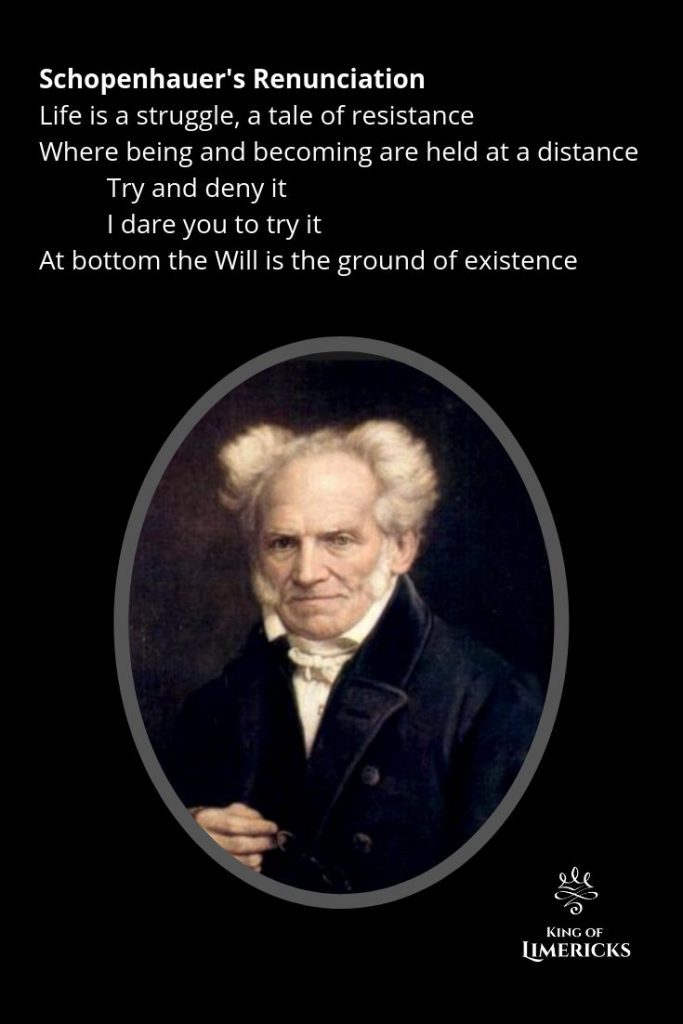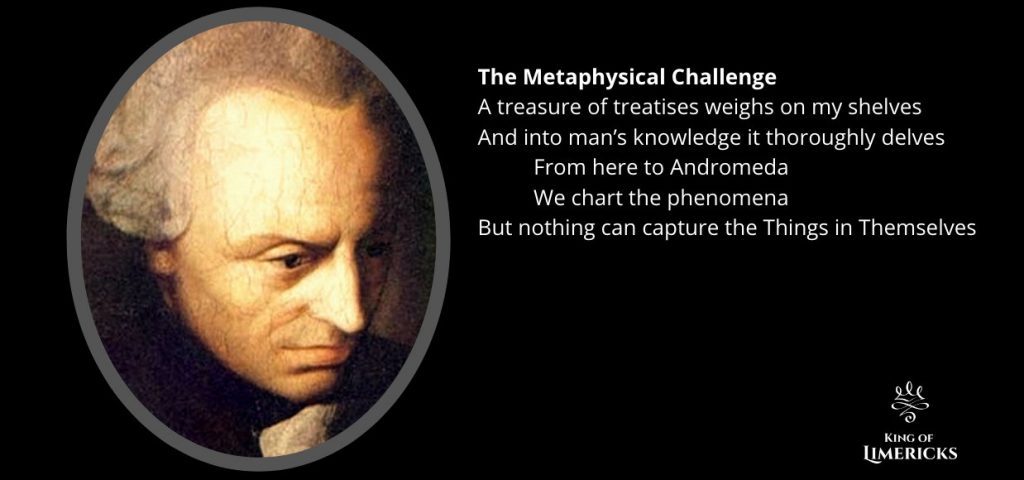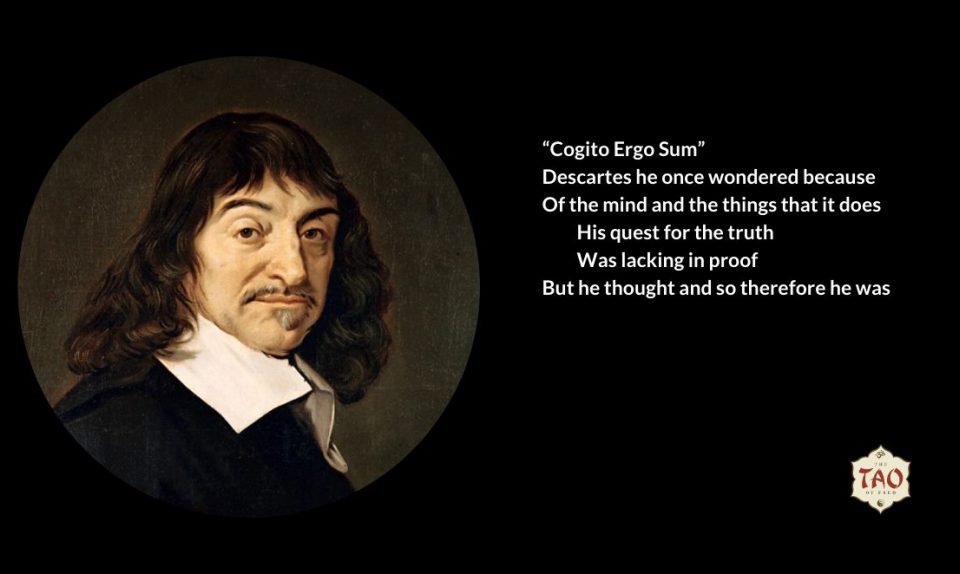
Encouraging Limericks about Virtue and Decency
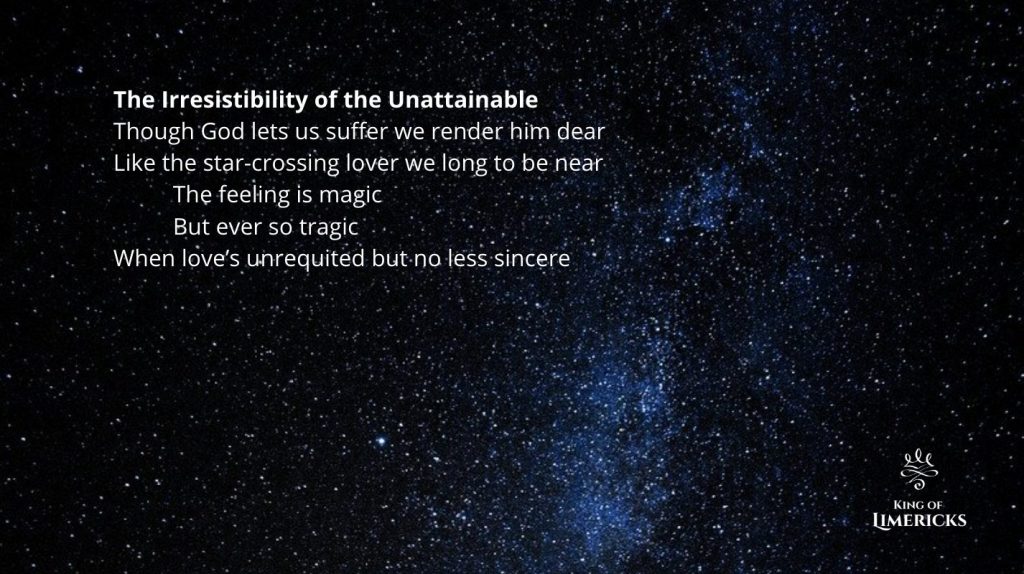
Mystifying Limericks about Religious Problems
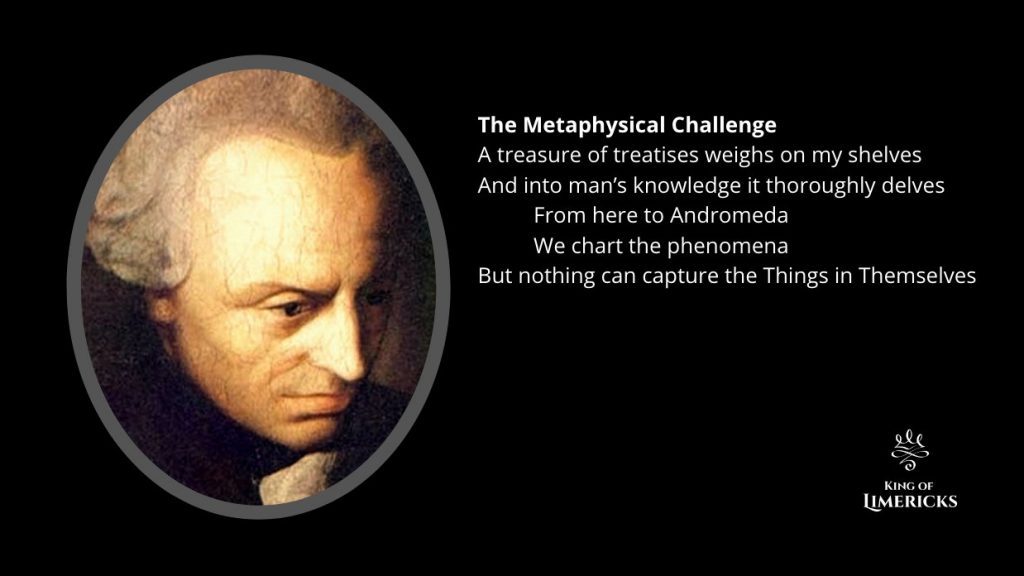
Few things known to man are more profound than German philosophy. Even the secondary literature is downright impenetrable. That’s why I strictly keep to the tertiary literature. “Schopenhauer for Dummies” is pretty much my go to.
But seriously, even if you can’t wade through the entirety of Hegel’s Phenomenology of Spirit, you can surely manage a handful of limericks.
Immanuel Kant is one of the brightest stars around which modern philosophy revolves. His Critique of Pure Reason and Metaphysics of Morals nearly turned Hume and Descartes on their heads. In the fine tradition of Plato, Kant had a healthy obsession with epistemology. And a nose for knowledge.
The Great Chain of Causes
What can we know, and how can we know it?
The original cause, I would like you to show it
Your logic’s proficient
But is reason sufficient?
For every sensation has something below it
The Metaphysical Challenge
A treasure of treatises weighs on my shelves
And into man’s knowledge it thoroughly delves
From here to Andromeda
We chart the phenomena
But nothing can capture the Things in Themselves
Hegel really shook things up when he came on the scene. In the wake of Kant, he picked up the mantle of German idealism and buried it with his notoriously opaque writing style.
G. F. W. Hegel
There’s a pig-headed pundit called Hegel
With logic he liked to finagle
Part of his thesis
Said change never ceases
It just keeps going ‘round like a bagel
Arthur Schopenhauer’s reputation as a pessimist precedes him, but his contributions to philosophy and metaphysics are impossible to ignore. His World as Will and Representation, clearly influenced by Buddhism and other eastern ideas, paints an elaborate and elegant picture of the forces that tie the cosmos together and keep it moving.
Schopenhauer’s Renunciation
Life is a struggle, a tale of resistance
Where being and becoming are held at a distance
Try and deny it
I dare you to try it
At bottom the Will is the ground of existence
Every angst-ridden teenager goes through his or her Friedrich Nietzsche phase at some point. Generally, the love affair comes to an abrupt end when the disgruntled youth realizes s/he’s misunderstood the entire body of work. Still, there’s something deceptively accessible about Nietzsche’s aphoristic writing. For many, the temptation to pull passages out of context is simply irresistible.
Amor Fati
There once was a hole but my hope has now filled it
My cup swims with joy even after I’ve spilled it
Your faith too can grow
Just as soon as you go
From believing “it is” to believing “I willed it”
Twilight of the Idols
As day turns to night and the sky grows crepuscular
The heroes we worshipped look less and less muscular
Ascend as you should
Beyond evil and good
At dawn you weren’t ready but maybe at dusk you were
The Love of Wisdom
The field of science has only one queen
A philosopher’s mind is remarkably keen
While Hume was empirical
I like the lyrical
Nietzsche by contrast was teeming with spleen
As a staunch and unapologetic member of the Nazi party, many struggle to reconcile Martin Heidegger‘s philosophy with his politics. Truly, it is problematic. But at the same time, it poses a challenge to us, to see beyond the foulness of his personality and into the depths of his lustrous ideas.
Being and Time
Thus have I heard it that God is a process
And not the scorekeeper who tallies your losses
No mystical wealth
Just Being itself
An effect which is more than the sum of its causes
Further Reading
If you liked these limericks about German Philosophy, you’ll be sure to enjoy:
- Limericks about Western Philosophy
- Limericks about Greek Philosophers
- Limericks about Existentialism
- Limericks about Germany
- 8 Common questions about limericks
References
Inspiration for these limericks came from an assortment of German philosophy books:
- Immanuel Kant’s Prolegomena to Any Future Metaphysics
- Immanuel Kant’s Critique of Pure Reason
- Hegel’s Phenomenology of Spirit
- Arthur Schopenhauer’s World as Will and Representation
- Friedrich Nietzsche’s The Gay Science
- Friedrich Nietzsche’s Thus Spoke Zarathustra
- Hubert Dreyfus’s commentary on Heidegger, Being in the World
- and a little help from the guys at The Partially Examined Life
